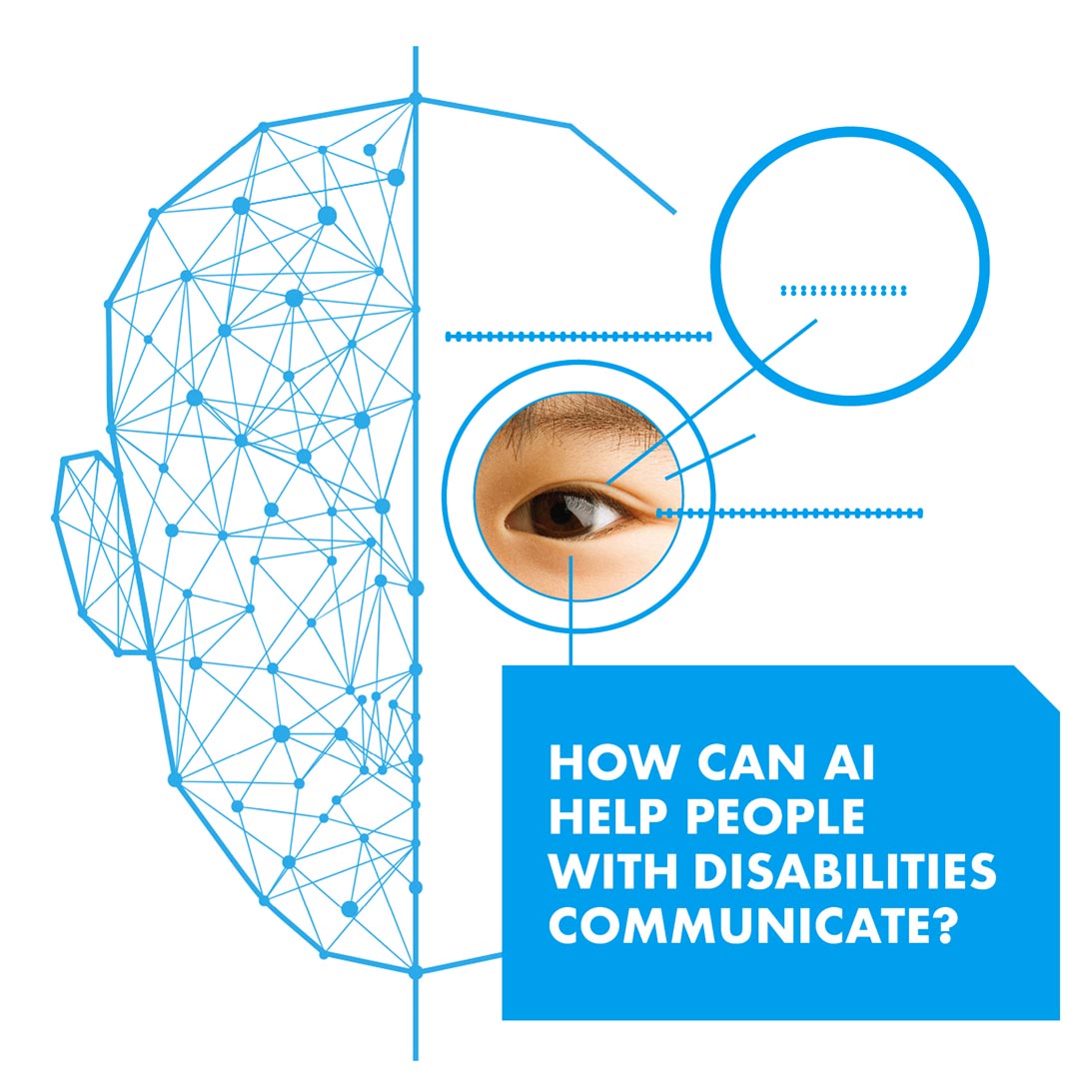
How Can AI Help People with Disabilities Communicate?
Swiss German University invent an application with artificial intelligence that can help people with cerebral palsy and Rett syndrome to communicate. The discovery of Augmentative and Alternative Communication (AAC) has been applied to children at the Development Foundation for Children with Disabilities and Hasan Sadikin Hospital.
Rett Syndrome is a genetic disorder that mostly affects girls. The disorder occurs between one in 10000 to 15000 girls in Indonesia. They usually very difficult to communicate because have a mental decline, hand function, and speech ability. Rett Syndrome patients have little-to-no speech capabilities, and their hands often move involuntarily, especially with regards to Activities of Daily Living (ADL).
Meanwhile, cerebral palsy is caused by abnormal brain development that often occurs before birth. Just like Rett’s syndrome, they also have difficulty communicating because of their paralyzed body condition. Even so, some limbs with cerebral palsy usually still function properly, making it possible for them to use applications on their gadgets.
Dean of the Faculty of Engineering and Information Technology Maulahikmah Galinium said the research was conducted for the first time in 2018 together with YPAC Jakarta. They need a tool that allows people with cerebral palsy to communicate with their parents or caregivers.
Maula said, SGU then made an application via cellphone that can be used by people with cerebral palsy to express their wishes such as wanting to eat or to the toilet. “For people with cerebral palsy, cellphone use is still possible because part of their body can still be used, either their hands or feet. Some cerebral palsy sufferers use this application using their feet, “said Maula.
Rett Syndrome
Another case with Rett syndrome sufferers who experience a condition more severe than cerebral palsy. Their condition makes it impossible to use cell phones.
SGU researchers then made a prototype to create a communication tool for patients with Rett syndrome at Hasan Sadikin Hospital, Bandung. “Doctors in Hasan Sadikin Hospital have said that they have tried other methods, including timetable, flashcards, but these did not work,” said Maula.
The research objective is to develop a web-based Augmentative and Alternative Communication (AAC) application to help the caregivers to communicate with the patient. The AAC application will either use head-pose or gaze-tracking to help the doctors or caregivers determine the needs that need to be satisfied.
Before using the eye tribe, the user needs to do the calibration first. The calibration consists of the user needing to gaze to the circle, and every several seconds, the circle moves to the new position of the screen, and the user needs to gaze to the new position of the circle.
After performing the calibration, a new application can be implemented to detect patient preferences. Patients are presented with two pictures that represent their wishes. The webcam camera will then detect their choice via eyeball movement.
Detection must be done via webcam with a distance of about 45-75 cm to get a high level of accuracy. The level of accuracy also depends on the lighting of the room.
Maula said the research conducted by lecturers and students of the SGU Information Technology Study Program would still be developed. They also plan to collaborate with SGU’s Mechatronics Study Program to create chairs that can be combined with the AAC application. “This makes the use of sensors more practical and can be used daily,” he said.
About SGU
SWISS GERMAN UNIVERSITY (SGU) is an international university in Indonesia, was established in 2000 as a joint effort between Indonesia, Germany, Switzerland, and Austria. We are the pioneer in offering international curricula in Indonesia.
Qualified students can graduate with a Double Degree from Indonesia and Germany, which SGU provides in cooperation with partner universities; surely a valuable tool for your future careers. Ever since its establishment, SGU has been dedicated to delivering quality education in line with international standards and aims to develop skilled professionals who meet the demands of the industry. To achieve its objectives, SGU offers quality-oriented learning through 12 Bachelor’s Degree Programs and 4 Master’s Degree Programs ranging from Engineering, Information Technology, and Business to Life Sciences and Social Sciences. Furthermore, with small class sizes, and with English as the medium of instruction, you can look forward to pursuing your tertiary education and degree with full confidence.
Back
